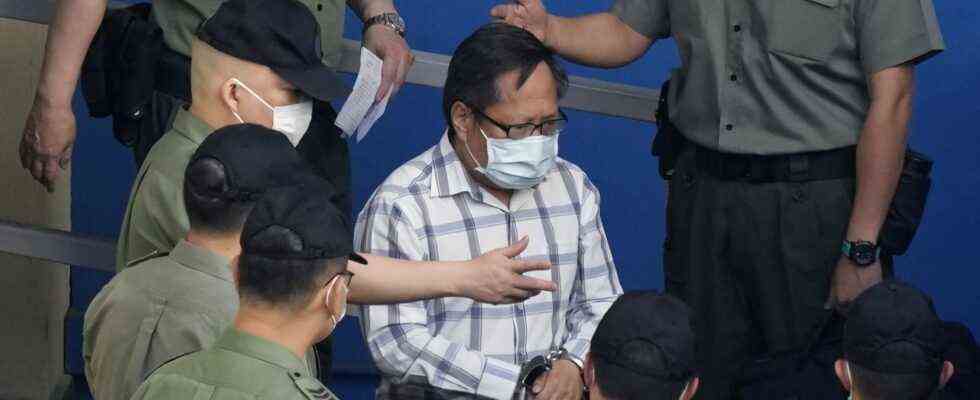Status: 09/10/2021 12:52 p.m.
It is becoming increasingly clear to critics that the “one country, two systems” principle no longer applies in Hong Kong. From their point of view, new evidence of this is the indictment of three prominent civil rights activists on the basis of the “Security Act”.
In Hong Kong, three prominent civil rights activists have been charged – with reference to the controversial “security law”. At a court hearing, the public prosecutor accused them of “inciting to undermine state authority”. These charges, which are otherwise often used in China to persecute dissenting activists, face up to ten years in prison.
Lee Cheuk Yan, Albert Ho and Chow Hang Tung are leading members of the Alliance in Support of Patriotic Democracy Movements in China, which is organizing commemorative events in Hong Kong on the anniversary of the Tiananmen massacre. It commemorates the victims of the bloody crackdown on protests for democracy on Tiananmen Square in Beijing on June 4, 1989.
The Hong Kong authorities have classified the alliance as a foreign agent and requested information about the group from members. Chow and four other senior members refused. They have been taken into custody. Ho and Lee are already in jail for their role in demonstrations in 2019.
Albert Ho handcuffed to a court hearing in May 2021
Image: AFP
“One country, one system” instead of the promised freedoms
With the indictment, the hitherto rule of law in Hong Kong is, from the point of view of critics, moving ever closer to the autocratic system in China. Critics complain that the “one country, two systems” principle of autonomy that has been pursued since Hong Kong was returned to China in 1997 is increasingly being replaced by the principle of “one country, one system” with the aid of the “security law”.
The Beijing and Hong Kong governments “are simply using the ‘security law’ to crush the democratic vision,” said William Nee of China Human Rights Defenders (CHRD). The “Security Law”, which came into force in Hong Kong last year, prohibits, among other things, endangering the state and working with foreign countries to interfere in the city’s affairs.
The communist leadership passed the law after mass demonstrations in Hong Kong for more democracy. It targets the opposition and is vaguely directed against activities that the leadership in Beijing sees as subversive, separatist, terrorist or conspiratorial.
District councils must swear allegiance
In the meantime, 24 district councilors had to take a new oath of allegiance to China, which the Hong Kong city council had asked them to do. According to official information, the ceremony took place in camera. In protest against the new measure, 260 of the 452 district councilors have already resigned.
District councils are the only representatives in Hong Kong who are elected exclusively by the population. They take care of everyday matters such as bus connections, garbage collection and playgrounds. In the course of the protests against the Chinese influence, they became a symbol of the desire of the Hong Kong people for greater political participation.
Since July 1, 1997, the former British crown colony has belonged to China again and is governed autonomously as a special administrative region. Actually, the seven million residents at that time were guaranteed extensive freedoms.
Hong Kong’s civil society under pressure: “We hardly have any freedom”
Ruth Kirchner, ARD Beijing, currently Berlin, 9/10/2021 4:17 p.m.

